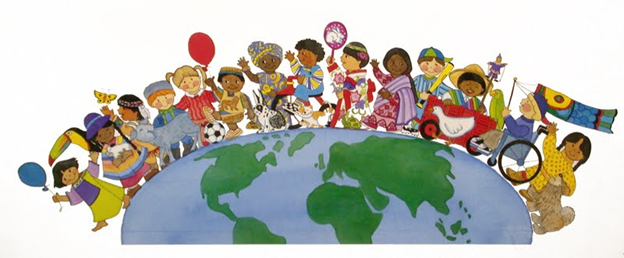"Community Provider"
Contributor : Dicky Irawan
What is Community Provider?
Community providers are websites that create a digital online environment in which people with similar interests can conduct transactions (buying and selling goods). Share interests, photos, videos; communicate with like-minded people; Receive interest-related information; and even fantasize by adopting online personalities called avatars. The social networking sites Facebook, Google+, Tumblr, LinkedIn and Twitter; Online communities like iVillage; and hundreds of other smaller niche sites, such as Doostang and Sportsvite, provide users with community building tools and services. Social networking sites have been the fastest growing sites in recent years, often doubling their audience size within a year.
How Community Provider Get Money?
Social networking is a daily activity for most of us. There are hundreds of millions of users on sites like Facebook and Twitter, and everyone is paying attention to their popularity. However, one of the things we all sometimes forget is that these social networking sites are businesses. They have employees and have costs. So how are social networks earning money?
The short answer is that they don't do it, at least on their own, at the beginning. There are several ways in which social networking sites earn money, with more on the horizon. This article aims to discover some of these methods and answer the questions many of us are asking.
1. Advertising and E-Commerce
Advertising is what most people would consider the number one in which social networks make money. After all, they have millions of users. There are millions of eyeballs that roam their website. Why don't advertisers want to get into those views?
It's true. The most common way for websites to generate revenue is to allow companies to advertise on the site. Web advertising is still an emerging market. Because of the millions of users on a social network site, advertisers may be willing to pay more for an ad on a social network.
Twitter recently called the developer conference called Chirp. At the conference they discussed various ways to monetize the website, in particular by exploiting advertising power.Their thinking is that, as users already use the site to get product recommendations and companies already use it to promote their products, customers may want to buy products directly from Twitter through e-commerce. We will see how their plans will come out in the coming months.
2. Offering Premium Options
Some social networks are completely free, but others offer users a premium option to make money. For example, LinkedIn has a premium package for job seekers. Although all network options are free on LinkedIn, if you need special privileges, you need to sign up for one of its premium options.
A recent example of interest was Ning. There are millions of users at Ning, but they recently announced that they would suspend the free service and concentrate on the premium model. They were also forced to quit some work. This shows how difficult it is to monetize social networking (for now).
For sites that incorporate applications and services into the community, fees for developers also help generate revenue.
3. Creative Products and Promotions
Due to the difficulty of monetizing a social network, websites are forced to devise creative ways to earn revenue. The best example of this is Facebook Gifts.With Facebook Gifts, you can send a virtual gift (different from the actual) on your recipient's profile to your friends. The cost of the gift is $ 1.00 and you can add a personalized message to it. genius.
4.Monetizing Our Data
"Data has the same probability of being an important part of the advertising business equation. Facebook, LinkedIn, MySpace and Twitter already have billions of useful data that can deduce as much of what is happening - and what will happen - in society of consumption. " - Forbes
The data accumulated by social networks is potentially very valuable. By aggregating this relationship data and making it anonymous, the community can find out who is willing to pay for it.
It is important that the information being sold does not violate the privacy of others, but that is a totally different issue. As long as the data contains our desires, needs, likes, hates, and interests, we can not measure its value yet. The sky is the limit!







